Electric Vehicle Charger Installation

Submit your enquiry now!
Need fast & competent EV charger installation? Fill in the Form and we will get back to you as soon as possible.
If you prefer, call Ken directly on 0405 83 83 83
Top rated EV charger installation
Reliable & cost
effective
Available across
Sydney
Electric Vehicle Charger Installers Serving All Of Sydney
Are You Looking For Electricians To Install Your EV Charger?

One of the most cost-effective and reassuring ways to charge your electric vehicle is in the comfort of your home. There are two ways to accomplish this when trying to charge up your EV:
- using the standard three-pin 10amp PowerPoint on your wall
- or installing the EV wall connector supplied with the vehicle.
Locating a 10amp Powerpoint close to your car could prove difficult, and the likelihood of trailing leads everywhere is possible. Would installing the EV charger unit that would prove less convenient and produce a faster charge than the standard three-pin power outlet be easier?
The installation of the EV charger unit has other benefits. The charging unit is entirely weatherproof and purpose-built for long-term use; the systems are designed and built for outdoor environments, so installing the system on an outdoor exterior wall is permitted.
Remember, if you plan on purchasing your first EV vehicle from September 2021, the NSW government has proposed rebates of $3’000 for the first 25’000 EV vehicles purchased for less than $68’750 (including GST).
Our electricians now have vast experience installing electric vehicle chargers. Whether a type 1 or a type 2 system needs fitting, our installation team has the know-how to do the job!
Experienced, Reliable Electric Vehicle Charger

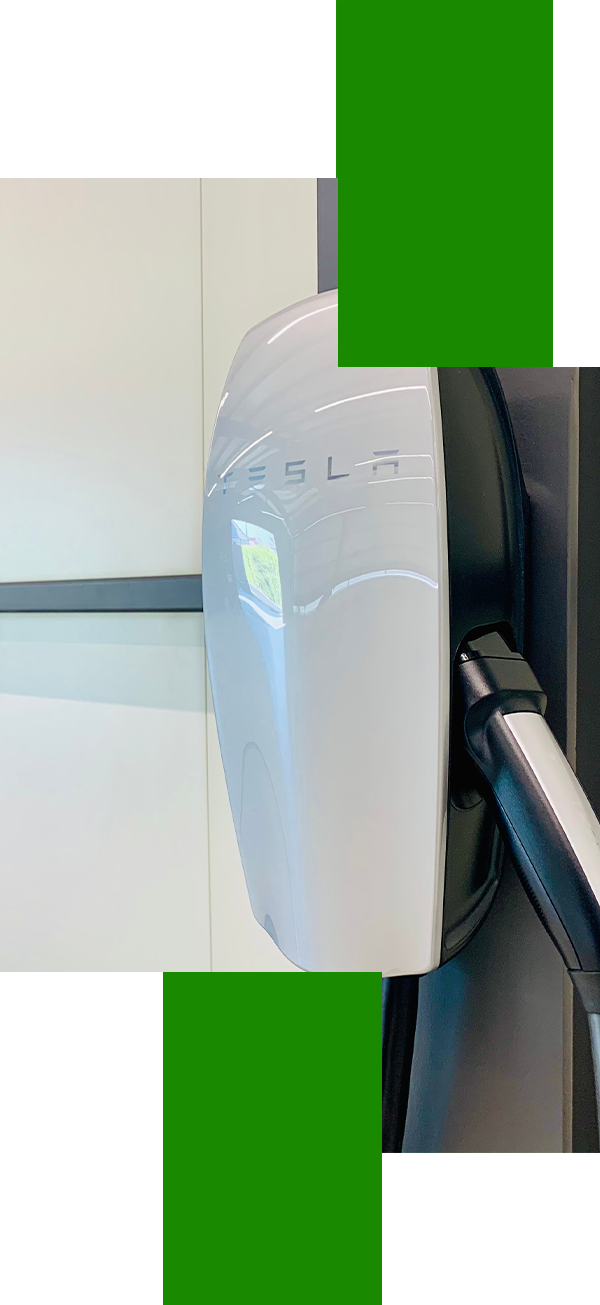
Installing Type One & Two EV Chargers
Are You Looking For Electricians To Install Your EV Charger?
The Type 2 electric vehicle charger installation is now the Australian standard, with most EV cars using this type of installation. Type 2 was formally a Tesla idea, but now all other EV manufacturers have jumped on board with this installation method. If your residence has a 3 phase power supply, we recommend installing the Type 2, three-phase unit as you will have ten times the charging speed over the single-phase portable unit.
The other option for a type 2 installation is the 32amp single-phase supply, which is effective but less fast charging than the three-phase power supply. Type 3 Direct Current (DC) charger units, often called Rapid or Fast chargers by some manufacturers, have EV chargers capable of charging a vehicle within 30mins at 80% capacity.
Please see below some detailed information on the different charger types
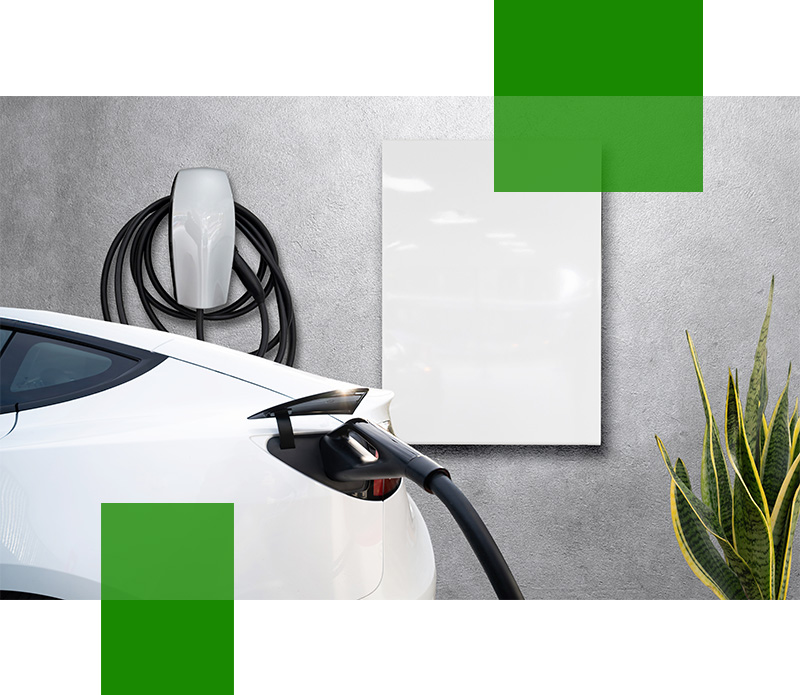
Type 3 – Direct Current (DC) electric vehicle chargers
Most homeowners will charge their EV vehicle using an AC supply, as most residential homes will have a max current output of between 80 – 100amps. There is a relatively big difference in charging power between the AC and DC charger units; some AC chargers will have a charge power of up to 20KW, but some DC chargers, on the other hand, can have a charging capacity of up to an incredible 250KW.
DC power has a much higher output voltage than its AC counterpart and can charge some electric cars with powerful 800 volts, allowing for rapid charging.
This type of charging is expensive, with some units costing a staggering $50’000 plus, and the current isn’t readily available in most residential homes.
The Tesla 250KWDC charging units can charge their vehicles within 30mins. The supercharger will top up the battery at 80% of its maximum charge, meaning longer life and durability. The Tesla supercharger is conveniently built on the 17-inch touchscreen control panel, making road trips more fitting. Tesla has also introduced its mobile app to monitor vehicle charging.
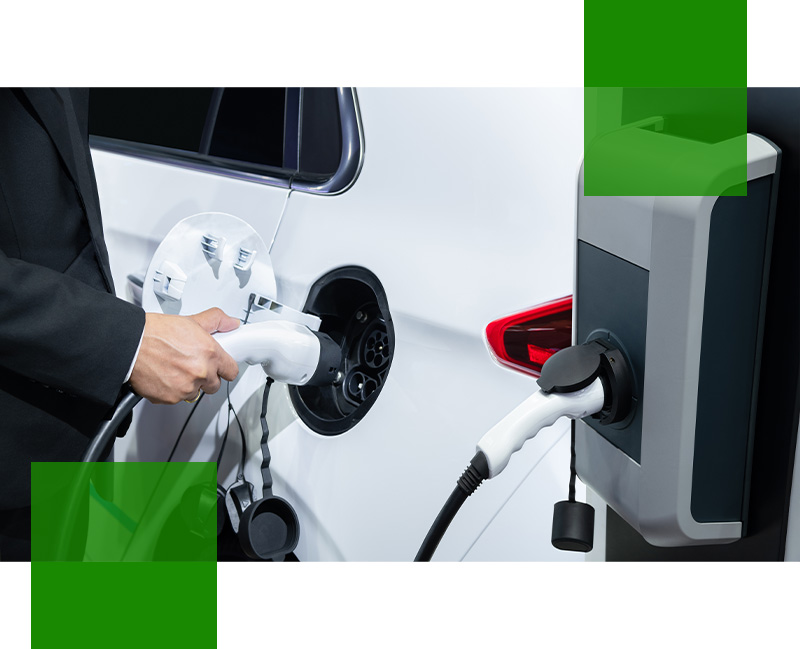
Type 2 – Electric car single-phase supply
The type 2 charging method will also operate on a single-phase supply connected directly to the network supply. Using the Tesla charging unit as an example – when a single-phase connection on a 32 amp circuit breaker is connected to a Tesla wall charger, it will produce up to 7kw of charging power. With only 7kw of power, the Tesla Model 3 will still take 14 hours to charge at total capacity. Unlike the Tesla fast charge on a 3-phase connection, the time it takes for the vehicle to charge fully is nearly twice as long. With the 7kw of charge power, you should produce at least a 35km range per hour of charge.
Again manufacturers will recommend the wall unit on a single-phase dedicated circuit if a 3-phase supply is unavailable.
Type 1 – Electric car charging units
No need for an electrician if you have a 10amp PowerPoint nearby. The type 1 charger is a mobile connecting unit with all-electric vehicles connected directly to your three-pin power socket. Some mobile charging units may also have a 15amp connecting plug needing a dedicated circuit. Tesla will recommend using their mobile connecter if the wall charger cannot connect to the network supply with a single-phase or 3 phase supply. The portable charging unit can charge at a 10km range per hour, making this method extremely slow. The type 1 charger unit is generally used as a backup to type 2 and is widely used in emergencies only.
At Km.electric, we provide professional & reliable EV Charger installation throughout the Sydney region. We can quote all types of EV Charger installation; Please call Ken at 0405 83 83 83 if you have any questions.
Ken and his staff are trustworthy, skilled and qualified professional electricians. Fully licensed, ACMA registered, and holds a security master license for security installations. Contact us today to get started.
Tesla EV Charger Installation

Do you own a Tesla? Frustrated with the slow charging time of the mobile connector? Upgrade your charging experience by installing a dedicated circuit for the Tesla charger unit. Our team of expert electricians can ensure a seamless installation process. Say goodbye to long charging times and enjoy the convenience of a fast recharge. Learn more about Tesla Electric Vehicle Charging or contact km.electric if you need help.
Why Are Dedicated Power Circuits Important For EV Charger Units?


There are many benefits to installing dedicated power supplies for your electric vehicle charging units. All EVs are designed and supplied with a mobile charging connector, which plugs into your car using a standard domestic power wall outlet. In the PowerPoint, your fridge and dishwasher are plugged into the same outlet. This same 10amp power outlet means you can charge your EV vehicle indoors and outdoors with an outdoor weatherproof power outlet.
However, it is worth noting that although you have a suitable PowerPoint to plug the mobile connector into, will you have enough power on the existing circuit to charge the electric vehicle? Some powerpoints belong to circuits with existing power outlets, and these outlets will also carry some load on the power circuit. So depending on the circuit’s load will determine if you can charge your EV vehicle through the mobile connector. A licensed electrician checking the wiring condition will decide if you can plug the mobile connector into that particular outlet. If the correct wiring is not in place, it must change to the relevant AS/NZS electrical standards before any charging unit is used to top up EV vehicles.
Although having a PowerPoint nearby will ideally power up your EV vehicle, the charging times could be more convenient and slow and may take up to 20 hours for some EV vehicles to charge. On the other hand, having a professional & licensed electrician install a dedicated circuit with its safety switch will improve charging times and convenience. Not only will it improve charging times, but it will boost the safety and efficiency of the electrical system in your home.


The convenience of having a dedicated circuit on a Type 2 charging unit will have your vehicle charged up within 5 to 6 hours on a 3-phase power supply. If the 3-phase supply is not readily available at your residential property, the single-phase supply will do just fine as it will charge up to 7KW.
Even the single-phase dedicated power supply significantly improves the mobile connecter charger. Charging your electric vehicle on a 240volt single-phase supply can take up to 14 hours, considerable progress from the 24-hour charging time of the mobile connector. Before purchasing any EV, an essential factor would be to check the electrical supply to guarantee adequate power for the charging unit.
The cable sizes will vary per wall connector installation. If the charging unit has a 3-phase power supply, installing a 6mm cable will suit 32amp RCBO. If the supply network and switchboard allow more power, installing a 10mm cable with a 40amp breaker will enable more power to the charging unit if the wall connector can withhold the 40amp current rating.
You can always upgrade to a 3-phase network if your premises only accommodate a single-phase supply. Upgrading a single-phase to a three-phase power supply will need to be applied through your local supply authority.
Unfortunately, these applications can be declined and will depend on the amount of power in your local area—the installation process can be a lot of work and cost a fair amount. Always seek the advice of professional electricians before installing EV charging units.
If you’d like to know more about other important considerations and requirements when installing EV chargers, check out our guide about home EV Charger Installation Requirements in Australia. This guide will delve deeper into factors you might not have thought of, helping you make an informed decision.
The Cost Of Installing EV Charging Units
The cost of an EV wall connector installation will depend on the size and location of the charging unit. The bigger the kilowatts, the bigger the price, and how far the wall connector is from the power supply board will also affect the installation cost. Homeowners prefer installing the Type 2 charging unit; the batteries charge fast, some within 5 to 6 hours, but this depends on the kilowatts of charge power. Some clients are happy just to top up their vehicles from a 10 amp power outlet as this procedure would allow extra savings over a dedicated circuit.
Installing a standard power outlet costs less than an allocated power supply, but the charging could be faster and more convenient. The cost of installing a PowerPoint can range from $200 to $350 but will depend on the complexity of the work.
A Type 2 installation, whether a single-phase or 3-phase supply, will cost more than the standard PowerPoint installation. The single-phase supply to the wall connector shows installation prices ranging from $350 to $1200.
How the cables are installed can determine the price, and on quite a few jobs, we have installed conduits for cable protection with some surface mounted and underground.
➜ Learn more about home EV Charger Installation Cost
What is the distance between the switchboard and the wall connector?
The further the location of the charging unit, the slight increase in cost there will be. We usually supply a 6mm cable to the wall connecter, but some systems require only a 4mm; the smaller the power supply, the less cost for the installation. Another determining part for cost, the safety switch or the RCBO, is the more significant the amperage and the slight price increase for the installation.
Installing a 3-phase power supply is our recommended installation for EV charging. A 22KW wall connector will charge your vehicle within 6 hours, allowing for more convenience and satisfactory charging. This type of installation costs more than the single-phase power supply due to the cable amount, size and amperage of the RCBO.
The difference in the cable between 3 phase and single is the number of cable cores. A single phase has three cores, and the 3 phase has five, allowing for more current across the extra 2 phases. All the same factors as the single-phase will determine the cost of the 3-phase power supply, the length and size of the cable, the amperage of the 3-phase RCBO and the installation method. The installation cost of a 3-phase power supply to your EV charging unit can range from $450 – $1500.
We Can Quote All Types Of EV Charging Units; Please Call Ken Directly At 0405 83 83 83 For All Wall Connector Queries.
Ken and his staff are trustworthy, skilled and qualified professional electricians. Fully licensed, ACMA registered, and holds a security master license for security installations. Contact us if you need help or have questions about EV charging in Sydney and surrounding areas.
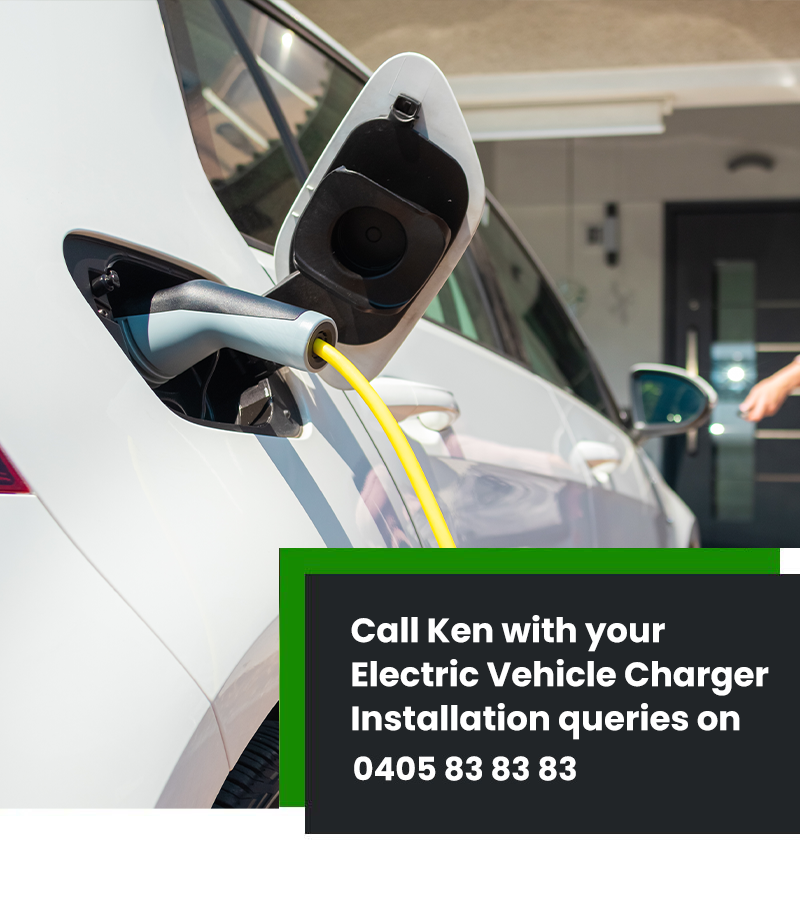
EV Home Charger Grants in Sydney
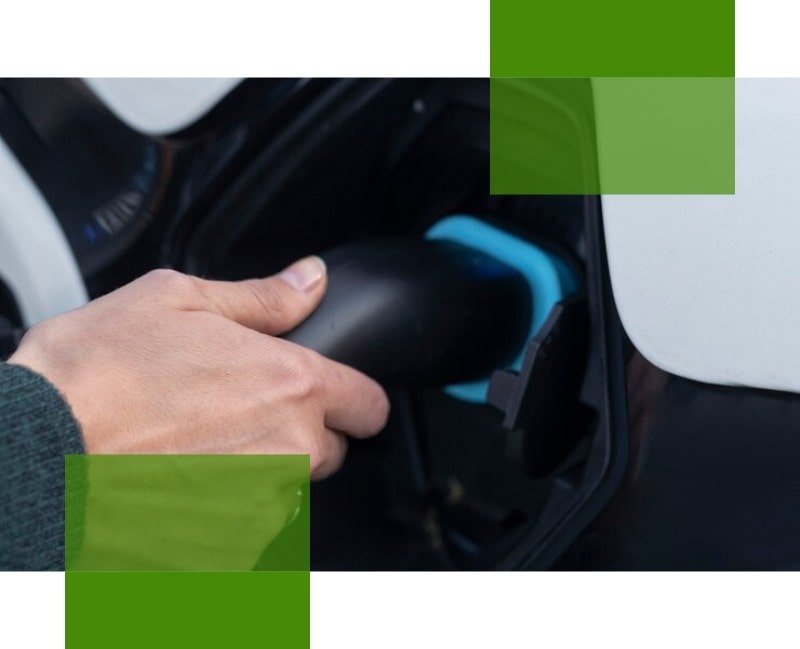
Price of Charging an EV in Sydney
Electrical Services
More Than Just Electric Vehicle Charger Installation
We provide a complete range of domestic electrical services for home-owners and landlords. From power points and LED lights, to switchboard upgrades and complete home rewiring, you can be sure of professional, high quality workmanship.

Smoke Alarm Installation
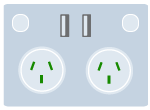
USB Power Points

L.E.D Downlight Installation
Electric Vehicle Charger Installation FAQs

Explore our FAQ section for detailed answers to your questions about installing an electric vehicle charger.
Why Choose KM Electric

Submit your enquiry now!
Need fast & competent EV charger installation? Fill in the Form and we will get back to you as soon as possible.
If you prefer, call Ken directly on 0405 83 83 83







